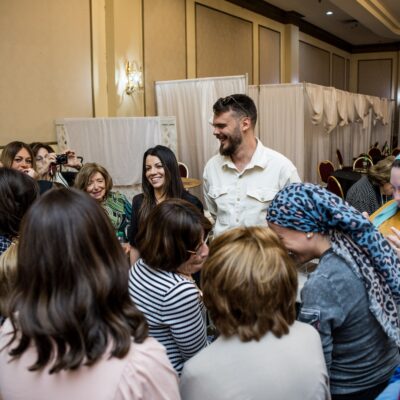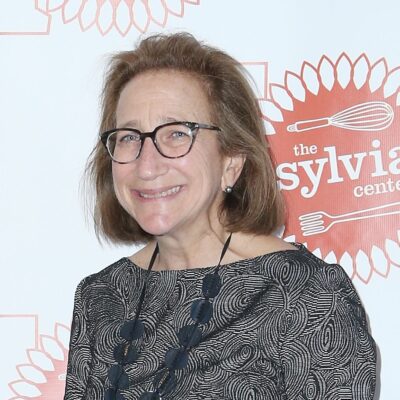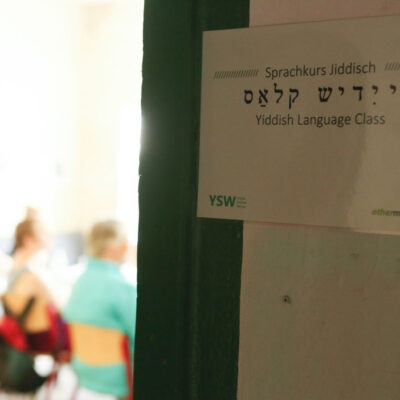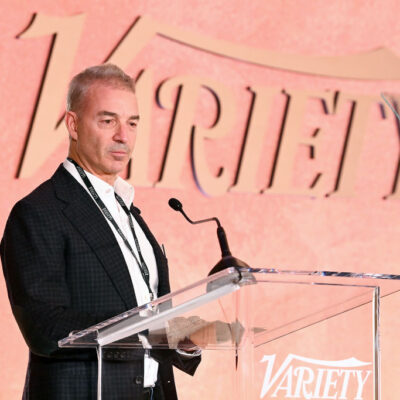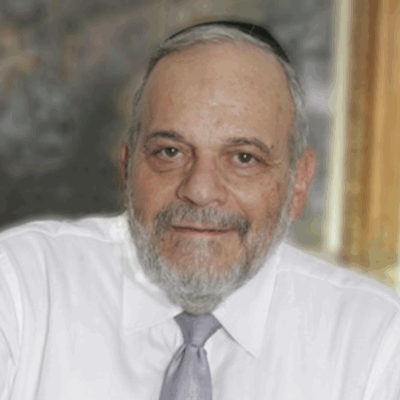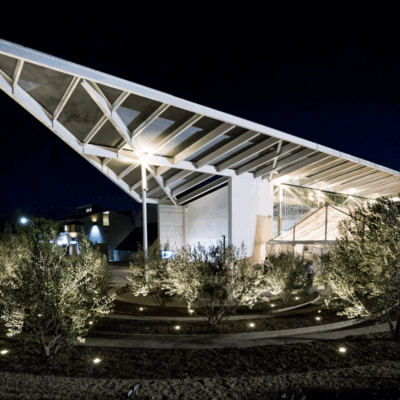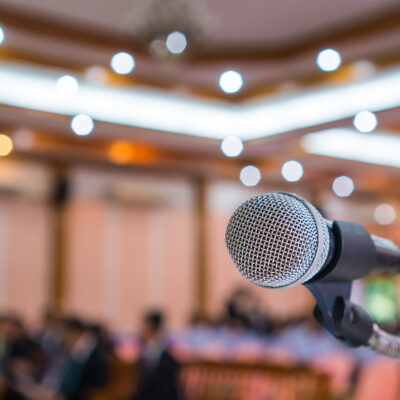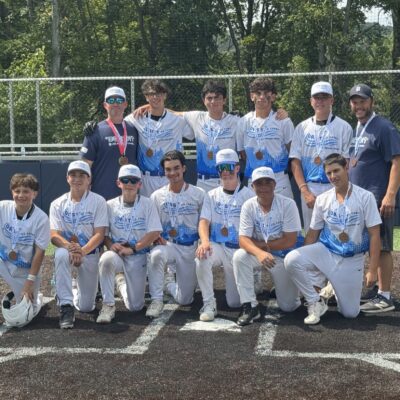IT'S A WRAP
At JFNA General Assembly, organizations try to map a path forward at an inflection point
Conversations address professional burn out, the scourge of antisemitism, how to best support Israel and how to chart a path forward in an increasingly polarized world

Nira Dayanim/eJewishPhilanthropy
Israeli President Isaac Herzog addresses the Jewish Federations of North America's General Assembly in Washington, D.C., on Nov. 11, 2024.
Since the Oct. 7 attacks, 146 local federations across North America raised more than $850 million in emergency relief in one year to help Israel with its immediate and long-term needs to rebuild. From Los Angeles to New York, federation staff and lay leaders worked overtime to accommodate an explosion in Jewish communal participation, which Jewish Federations of North America has named “The Surge.” For the first time since the attacks, more than 2,000 Jewish professionals, many of whom have been at the forefront of those efforts, convened for three days at the Jewish Federations of North America’s General Assembly in Washington D.C.
With operations on overdrive this year, conversations addressed professional burnout, the scourge of antisemitism facing Jewish communities, how to support both Israel and Ukraine amid their respective ongoing wars, and how to chart a path forward as a cohesive North American Jewish community in a time of increasing polarization.
“There is a high rate of burnout at every level,” said Jennifer Mamlet, acting president and CEO of the JCC Association of North America, during a panel addressing the post-Oct. 7 “Surge” in Jewish life on Monday.
Though last year’s General Assembly in Tel Aviv was marked by controversy as demonstrators — and some participants — protested the Israeli government’s judicial overhaul and Israeli Prime Minister Benjamin Netanyahu bowed out of speaking hours before he was scheduled to, this year was marked by calls for unity.
Israeli President Isaac Herzog, a former chairman of the Jewish Agency who addressed the conference in his first visit to the United States since the Oct. 7 attacks, reflected on the fraught past year and the necessity of strong Israel-Diaspora relations.
“Oct. 7 was a defining moment in Jewish history, not only because of the massive devastation, but because it reminded Jews what we need. We need each other…we have all seen how much strength we can summon and how much comfort we can draw from choosing to come together as one people,” Herzog said during his address at Monday’s afternoon plenary.
“If we cry together, rally together, mourn together, we can also choose to rebuild together. We are all stakeholders in the Jewish future,” said Herzog, who also stressed the need for Jews around the world and their allies to push for the release of the 101 hostages still in Gaza.
In his speech, Herzog thanked outgoing President Joe Biden for his “lifetime of friendship with Israel” — the two also met in the White House on Tuesday — and he praised Vice President Kamala Harris for “actively voicing her solidarity with the Israeli people.” The audience erupted in applause when Harris was mentioned.
Herzog also congratulated President-elect Donald Trump on his victory, calling him a “champion of peace and cooperation.”
Herzog also touted his Voice of the People initiative, a project that he announced at last year’s GA aimed at combatting inter-communal polarization, which was paused in the wake of the Oct. 7 attacks and relaunched in September. At the end of the month, results from a Voice of the People survey about the biggest issues facing the Jewish community will be released, CEO Shirel Dagan Levy told eJewishPhilanthropy. She hopes the data will help inform Jewish organizations’ plans moving forward.
“Our strength as Jews is to be able to look at the future and see a better one, even when things are really really bad right now,” Dagan Levy said.
In sideline conversations at the gathering, many attendees were fixated on Sunday’s “Stand Together” event, which drew fewer than 5,000 attendees despite organizers hoping for 30,000. Though tied to a variety of factors — from cold, rainy weather and a difficult ticketing system to the decision by some progressive groups to forgo the event over disagreements about the lack of critical voice — the rally’s sparse attendance hampered the organizers’ stated goal of projecting unity and resilience in the face of a difficult year and divisive election season.
With the end of 2024 approaching — and end-of-year giving along with it – partner organizations from North America and around the world, particularly Israel, descended on the GA with a variety of objectives. Jewish Agency CEO Yehuda Setton told eJP earlier this week that his primary goal is not to raise money for his organization but to find new partners and opportunities for collaborations.“It’s not, ‘Will they give another million to the Jewish Agency?’ but, ‘Will they make Israel stronger and ensure the future of the Jewish people?’” he said.
For other Israeli groups that have found new North American donors in the past year, the GA also offered an opportunity to potentially deepen and expand those emerging relationships.
Elan Carr, CEO of the Israeli American Council, told eJP that the GA “provides an exceptional opportunity to strengthen our national and local partnerships, to support the great JFNA network and to integrate the Israeli voice and spirit into the Diaspora community.”
The American Jewish Joint Distribution Committee recreated a “Quiet Room” for GA attendees to experience, a way for the group to debut to a Diaspora audience one of the trauma therapies that the organization has implemented in Israel — used as a solution used to reduce anxiety and mental stress.
Family members of Israeli hostages Yair and Eitan Horn, Arbel Yehud, Romi Gonen, Keith Seigel, Sagui Dekel Chen, Omer Neutra, Itay Chen, and Nimrod Cohen were also present, some addressing attendees of the “Stand Together” event on Sunday. Several met with members of Congress on the GA sidelines, and with National Security Advisor Jake Sullivan on Tuesday.
Even while focus was on rebuilding Israel, much of the subject matter focused on last week’s U.S. presidential election, as well as rising rates of antisemitism nationwide.
In a session on Monday, Jewish advisors and organizations heads debated whether President-elect Donald Trump would appoint a Jewish community liaison (Trump sparked controversy during his first term by being the first president since Jimmy Carter to not appoint one). “It’s better to have a Jewish liaison,” Carr, who served as the State Department’s special envoy to monitor and combat antisemitism during the second two years of Trump’s first term, said during the panel. “We lived without one, and we did okay. But it’s better to have one.”
Several speakers on the main stage, ranging from Free Press founder Bari Weiss to Ikar’s Rabbi Sharon Brous identified this year as an inflection point for the Jewish community.
“History is back. The old world, the old normal, it is not returning. It is on us to build the new one, and it is on us to ensure that it is free,” Weiss said.
Brous called upon the audience to expand their empathy towards Palestinians and consider what things might look like in the aftermath of Israel’s wars in Gaza and Lebanon.
“We’re called to love the stranger… frankly, that means to actually try to love and to see the humanity of and embrace the humanity of the Palestinian people, even in this moment. Can we do both?”
Sheryl Sandberg, founder of Lean In and former COO of Meta, said Tuesday during a conversation with JFNA Board Chair Julie Platt that she has come to embrace her Jewish and Zionist identities since the Oct. 7 Hamas attacks on Israel.
The GA concluded with Sandberg’s statement: “I am female, I am a business leader, I am an American, and I am a Jew, and I sit on this stage as a proud Zionist and a proud Jew, in a way I wouldn’t have a year and a half ago.”

